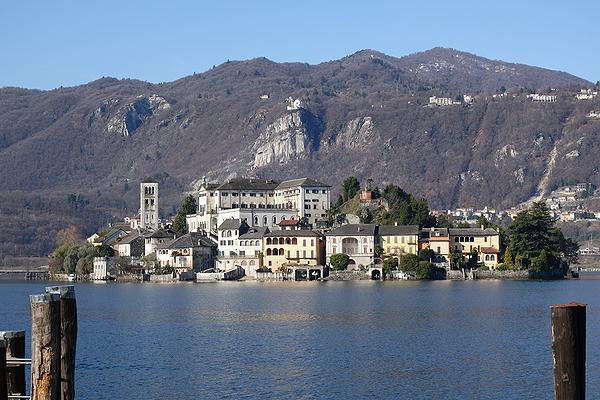ITALY CHRONICLES
Latest Posts

New! Italy Photo Contests – Show Off Your Photos of Italy
If you, like me, you think Italy is extremely photogenic, you might be interested to hear that Italy Chronicles is to run photo contests. The
Italian Politics – Still a Mess
Here’s a roundup stroke overview of what’s going on in the decidedly odd world of Italian politics. Broadly, there are three political factions in Italy,
Wild Boar Hunting in Italy
Ever thought about wild boar hunting in Italy? Maybe not but perhaps you might like to. Italy has a bit of a problem with wild
Berlusconi Heart
On Thursday in Italy headlines were dominated by the news that Silvio Berlusconi, a former and controversial prime minister, required an urgent heart operation and had
Money People – The World’s Biggest Problem
What’s that old saying? Ah yes, “money is the root of all evil”. From what is happening in Italy and elsewhere around the world, there
Italian Politics – Still a Mess
Here’s a roundup stroke overview of what’s going on in
Wild Boar Hunting in Italy
Ever thought about wild boar hunting in Italy? Maybe not
Berlusconi Heart
On Thursday in Italy headlines were dominated by the news
Money People – The World’s Biggest Problem
What’s that old saying? Ah yes, “money is the root
Italy
Bad Italian Post Office Bonds
An ill wind is blowing from the direction of the Italian post office service, and said bad wind emanates from a quietly brewing storm.

Is It Really 100% Made in Italy? Ferraris Are Not.
From time to time, the thorny Made in Italy question flares up in Italy. The topic has once more occupied Italian hearts and minds owing
Pedestrian ideas and dog poo
I 've already gone on about Italian driving in another post, in which I expressed the opinion that they were not as bad as they
When Digital Television is not Digital
For a long time I thought we were lucky enough to have the new fangled, all singing and dancing, much vaunted digital television. No silly little set top box for us, or so I thought.
Uncovering Ancient Rome’s Gladiators: Their Stories Revealed
Ancient Rome’s gladiators continue to captivate our imagination with their tales of bravery and spectacle. Unveiling the stories of these legendary fighters allows us to

The Admirable Admiral’s Villa in Taormina
If you know your history pretty well, you may be aware that one of England’s most celebrated Admirals possessed a rather charming villa in the scenic Sicilian town of Taormina.
Alitalia RIP?
Things are not looking at all good onthe Alitalia Italian national airline front.
Intransigent Italian unions have refused to back down in negotiations to take over Italy’s beleaguered national airline. The net result is that everyone who works for the company will now lose their jobs. Nice move.

Berlusconi’s French Connection
Well, he has billions, virtually runs every aspect of Italy, and claimed that he wanted to save Alitalia for Italy, even if, after all the tooing and froing, one Alitalia’s original suitors, namely Air France, appears to have fallen back in favour.
Properties
House For Sale near Milan
Gaetano Salvo, friend and Blog from Italy researcher wants to sell his house. For those who might be interested, or may know of someone or

The Admirable Admiral’s Villa in Taormina
If you know your history pretty well, you may be aware that one of England’s most celebrated Admirals possessed a rather charming villa in the scenic Sicilian town of Taormina.

How to Find Property for Rent in Italy
Maybe you are coming to Italy to work or study here for a while, in which case, you’ll need somewhere to live. If that’s the

The Admirable Admiral’s Villa in Taormina
If you know your history pretty well, you may be aware that one of England’s most celebrated Admirals possessed a rather charming villa in the scenic Sicilian town of Taormina.

How to Find Property for Rent in Italy
Maybe you are coming to Italy to work or study here for a while, in which case, you’ll need somewhere to live. If that’s the
Places to stay in Italy
Villa Miller Bed and Breakfast, Puglia, Italy
Located well off the main road in the depths of the Puglia countryside, Villa Miller the only sounds which disturb guests are those of the crickets and the ringing of the bells worn by the areas cow and sheep population.
Casa Villatalla B&B, Liguria
By far the most important members of the Casa Villatalla household are Nellie (an elderly but loveable chocolate Labrador), Bonnie, a fluffy and rather scatty American Spaniel, and Pickle, aneccentric cat who walks like John Wayne.
Baur Bed and Breakfast, Acqui Terme, Piedmont
“You may have the universe if I may have Italy.“ – Giuseppe Verdi (1813-1901) Is the quotation which greets you when you visit the Baur B&B website, demonstrating how enchanting the owners find Italy.
Casa Villatalla B&B, Liguria
By far the most important members of the Casa Villatalla household are Nellie (an elderly but loveable chocolate Labrador), Bonnie, a fluffy and rather scatty American Spaniel, and Pickle, aneccentric cat who walks like John Wayne.
Villa Miller Bed and Breakfast, Puglia, Italy
Located well off the main road in the depths of the Puglia countryside, Villa Miller the only sounds which disturb guests are those of the crickets and the ringing of the bells worn by the areas cow and sheep population.

